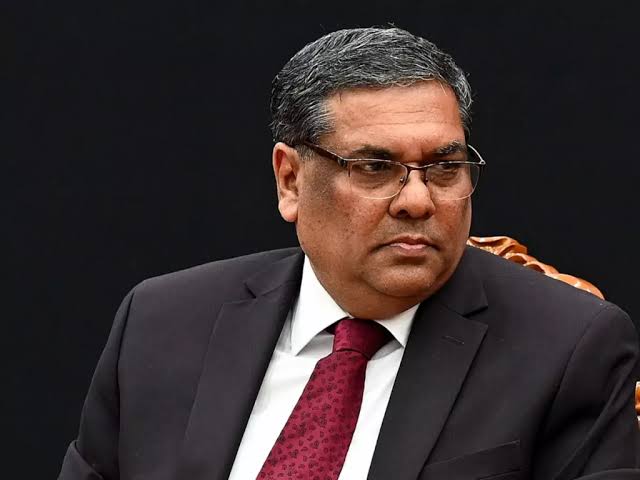Chief Justice of India Sanjiv Khanna, while addressing the 3rd Convocation Ceremony of Maharashtra National Law University (MNLU), Nagpur, emphasized the importance of authenticity, adaptability, and resilience in navigating a successful legal career. He urged young legal professionals to stay true to their identity rather than conforming to societal expectations of success.
Success in Law: Beyond Aggression and Socializing
CJI Khanna dispelled the notion that success in law requires aggression or overt socializing, emphasizing instead the mastery of argumentation:
“In the years ahead, you’ll hear countless voices telling you who a lawyer should be—that aggression is key to litigation, that corporate law demands a certain personality, that networking, dressing, and speaking a certain way are essential. Some days, you may feel like an impostor, wondering if everyone else got a secret manual on how to be a ‘real’ lawyer.”
He highlighted how some of the most formidable litigators do not raise their voices yet command absolute attention, and how brilliant corporate lawyers thrive despite preferring solitude over networking.
“In a world of cynicism, remember—authentic work cuts through the noise. Your voice, your approach, your way of thinking, paired with excellence in your work, is an unbeatable combination.”
Key Takeaways from CJI’s Address
1. Adaptability in an Ever-Evolving Legal Profession
CJI Khanna stressed that entering the legal field requires unlearning and adapting, as real-world legal practice often differs from law school teachings.
“Stepping into this profession is just as much about unlearning as it is about applying what you’ve learned. Unlearning doesn’t mean abandoning knowledge—it means adapting it. It’s how you’ll transform what you know into tools for real-world challenges.”
He emphasized that law is fundamentally about solving people’s problems, and solutions must be dynamic rather than rigidly confined to traditional litigation.
“Not all disputes are suited for courtroom litigation or even arbitration. Mediation, for instance, is not just about dispute resolution but about finding creative solutions that strengthen relationships. Justice delivery must be cost-effective and time-bound.”
2. Using Legal Education for Social Change
Highlighting the historic role of lawyers in driving social change—from the freedom struggle to modern socio-legal challenges like climate change and AI—CJI Khanna underscored the duty of lawyers to contribute through legal aid and pro bono work.
“India has one of the most robust legal aid frameworks, covering nearly 80% of the population. A young workforce can help realize the objectives of NALSA, making India a global leader in legal accessibility.”
He encouraged lawyers to balance personal ambition with social responsibility, citing the “one for the kitchen, one for the soul” philosophy—pursuing professional success while also serving the greater good.
3. Tackling Uncertainty: Believe in the Process
Addressing career anxiety, CJI Khanna reassured young lawyers that success is rarely linear and unexpected detours often lead to the most rewarding destinations.
“Your generation meticulously plans every career step. But passion doesn’t follow a checklist. Sometimes, it’s not about chasing what you want but letting it find you. Consider Nani Palkhivala—one of India’s greatest legal minds—who stumbled into law only because admissions to other courses were closed. He embraced the unplanned, and it led him to greatness.”
He advised students to diversify their knowledge beyond law, as understanding various fields enhances legal reasoning and application.
“The paradox is— the more you enrich your world beyond the law, the better lawyer you become. Every new perspective becomes a tool in your legal arsenal. You can either be a magnifying glass, focused on a single point, or a prism, taking in light from all directions to create something richer.”
4. Hard Work & Discipline Over Networking & Talent
While acknowledging the importance of networking, CJI Khanna cautioned that self-discipline and perseverance ultimately shape a lawyer’s career.
“In today’s world, there’s so much emphasis on networking and LinkedIn profiles. While these things matter, your generation sometimes forgets the first and most essential step: tenacity. Success isn’t built on inspiration—it’s built on habits, effort, and consistency.”
He reiterated the famous saying:
“The harder I work, the luckier I get. Luck is not found; it is earned.”
CJI Khanna also emphasized the role of a strong support system in overcoming challenges:
“Surround yourself with people who lift you up—friends and family who encourage you, but also those who challenge you when needed. No person is an island. Success is deeply personal, but rarely achieved in isolation.”
Conclusion
CJI Khanna’s address offered invaluable insights into navigating a legal career with authenticity, resilience, and a commitment to social justice. His message resonated with young professionals preparing to enter the legal field—urging them to stay true to themselves, embrace uncertainty, and work relentlessly towards excellence.



